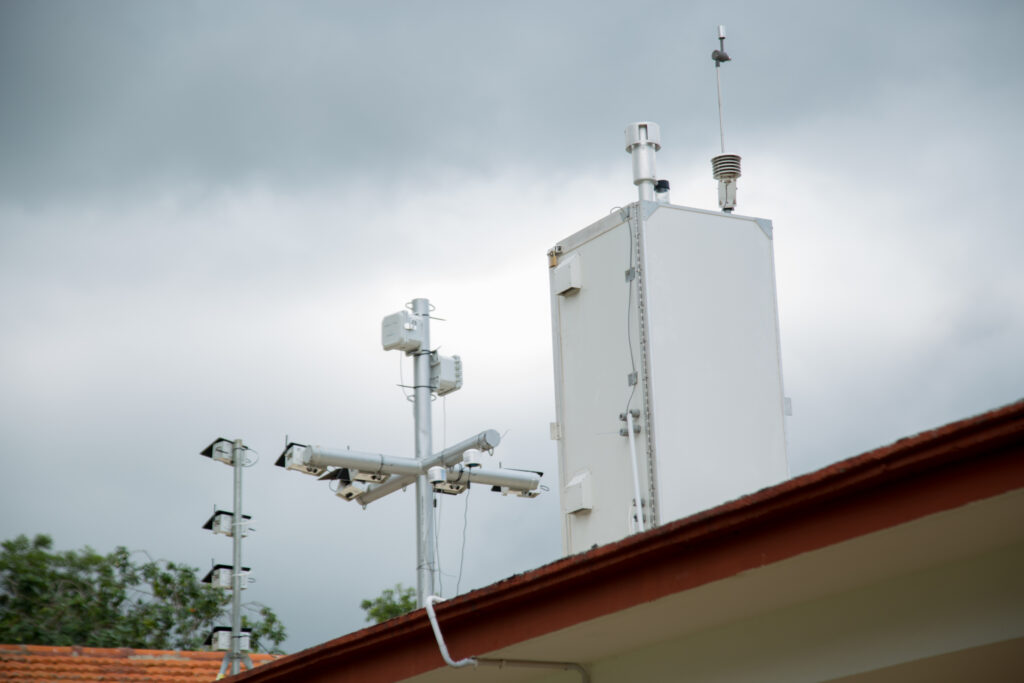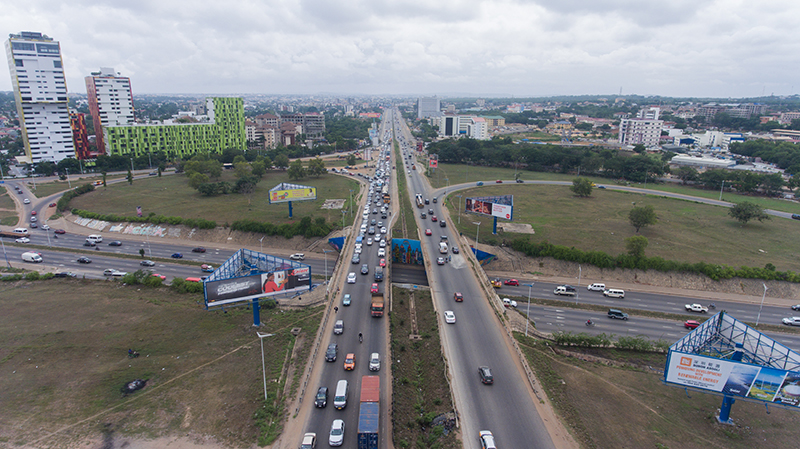With a rapid economic expansion and population growth and a high rate of urbanization, air pollution has become a serious challenge in Ghana. Almost all Ghanaians are exposed to air pollution that exceeds the levels set in the World Health Organization’s (WHO’s) guidelines for clean air. Current air quality conditions present an unacceptable health burden for the population of Accra. It is estimated that about 8% of total mortality which is approximately 16,000 Ghanaians die prematurely each year because of air pollution. This number is projected to increase to approximately 4,600 by 2030 if no action is taken to reduce current and projected future levels of air pollution.
A recent World Bank Ghana Country Environmental Analysis estimates that the economic cost of air pollution is at US$2.5 bn or roughly 4.2% of the country’s 2017 gross domestic product. Financial costs of treatment of air pollution-related disease are also high.
Air pollution in the Greater Accra Region is generated by a diverse set of sources including point sources (industrial sites), mobile sources (vehicles), and area sources, both from naturally occurring (Harmattan wind-blown dusts and sea salt) and man-made (cook stoves and open burning of wastes) sources. Transportation, solid waste, and commercial/industrial are among the chief sources of air pollution.

Capacity for air quality planning and management
The World Bank’s Pollution Management and Environmental Health Program, which is funded by the governments of Norway, Germany, and the United Kingdom; has strengthened the institutional capacity of the Environmental Protection Agency (EPA) to address existing monitoring and planning gaps for air quality management.
The program has improved air quality monitoring, and the EPA can now employ new measurement methods for air quality monitoring and analysis. It also has an enhanced understanding of the importance of rigorous attention to standard operating procedures and quality assurance protocols necessary for high quality gravimetric analysis. The Agency now has improved understanding of air pollution across Greater Accra Metropolitan Area (GAMA) and role of various emission sources and natural events in contributing to poor air quality.
The program has enhanced the understanding of key sources of air pollution. EPA now has enhanced capacity to perform receptor modeling on new results moving forward. Again, the program has supported EPA Ghana to establish a cloud-based data management system to upload, store and query air quality data enabling a real-time Air Quality Index for public awareness. The Program has also supported the EPA to develop a full-scale Air Quality Management Plan for the GAMA.
Recommendations for a cleaner air
The efforts undertaken through the PMEH project has provided insight into the critical next steps that need to be taken in support of EPA Ghana’s air quality management efforts in Accra. Supporting EPA Ghana with their work in Accra has helped to create a model that the agency can use and apply in other major cities with air quality concerns. Further, support to EPA Ghana will help to strengthen it as a regional leader in air quality measurement and management that will allow sharing of expertise within West Africa and Sub-Saharan Africa as a whole.

The Program recommends consideration of additional efforts and the following next steps:
- Improve enforcement of existing air pollution regulations
- Provide sustained funding to deliver on air quality management goals. An overhaul of EPA’s laboratory equipment will allow them to improve their measurement system to be consistent with international air quality measurement best practices. EPA Ghana has struggled to keep their equipment functioning.
- Design LPG cookstove interventions for rural and urban communities; study supply chains and market conditions to identify incentives for LPG distribution companies and clean cookstove manufacturers/suppliers; target subsidies to transition away from solid biomass fuel use
- Develop an Integrated Air Pollution Prevention and Control Program for Ghana. The need for Ghana to develop an integrated air pollution prevention and control program focusing on key sectors (transport, waste and biomass burning or clean cooking) to reduce emissions. The program should place a special emphasis on how to coordinate policies across three sectors most closely linked to the mitigation of air pollution from road transport—environment, transport, and energy—and how to reconcile the sometimes-conflicting objectives and demands of these sectors to achieve environmental improvement.
Let us all collectively work through our behaviors to reduce the health effects of air pollution, particularly during this era of COVID-19 pandemic.
BIO – Authors for Ghana CEA
 Sanjay Srivastava is Manager of Environment, Natural Resources and Blue Economy Global Practice for the Africa region at the World Bank. He is a trained Environmental Engineer with more than 30 years of development experience with focus on environment and climate change agenda, including 15 years in Africa and South Asia region; and several years with private sector (manufacturing and environmental consulting companies), public sector , donors and non-government organization (conservation NGO). He has been involved in high level policy dialogue with on managing environmental risks in infrastructure and sustainable development, making a business case to mitigate environmental degradation, protecting biodiversity, and promoting cleaner production process to improve productivity and prevent pollution Currently, he leads a team promoting green, clean and resilient development outcomes in multiple countries and development sectors in West and Central Africa.
Sanjay Srivastava is Manager of Environment, Natural Resources and Blue Economy Global Practice for the Africa region at the World Bank. He is a trained Environmental Engineer with more than 30 years of development experience with focus on environment and climate change agenda, including 15 years in Africa and South Asia region; and several years with private sector (manufacturing and environmental consulting companies), public sector , donors and non-government organization (conservation NGO). He has been involved in high level policy dialogue with on managing environmental risks in infrastructure and sustainable development, making a business case to mitigate environmental degradation, protecting biodiversity, and promoting cleaner production process to improve productivity and prevent pollution Currently, he leads a team promoting green, clean and resilient development outcomes in multiple countries and development sectors in West and Central Africa.
 Agata Ewa Pawlowska is the Operations Manager for Ghana, Liberia, and Sierra Leone. She joined the Bank in 1998 as a Senior Economist. In this capacity she worked first in the Europe and Central Asia Region covering several countries in Eastern Europe and later in the Africa Region managing projects in several Sub-Saharan countries and focusing on the private and financial sector development issues. She was part of IDA15 and IDA16 replenishments team; managed Ethiopia’s multi-sector portfolio of World Bank projects and analytical work and was Country Manager for Turkmenistan. She also held various field-based positions in Kazakhstan, Ghana, and the Philippines.
Agata Ewa Pawlowska is the Operations Manager for Ghana, Liberia, and Sierra Leone. She joined the Bank in 1998 as a Senior Economist. In this capacity she worked first in the Europe and Central Asia Region covering several countries in Eastern Europe and later in the Africa Region managing projects in several Sub-Saharan countries and focusing on the private and financial sector development issues. She was part of IDA15 and IDA16 replenishments team; managed Ethiopia’s multi-sector portfolio of World Bank projects and analytical work and was Country Manager for Turkmenistan. She also held various field-based positions in Kazakhstan, Ghana, and the Philippines.
Before joining the Bank, Agata worked for an international consultancy firm based in London, UK as well as a lecturer at the University of Lodz in Poland.












